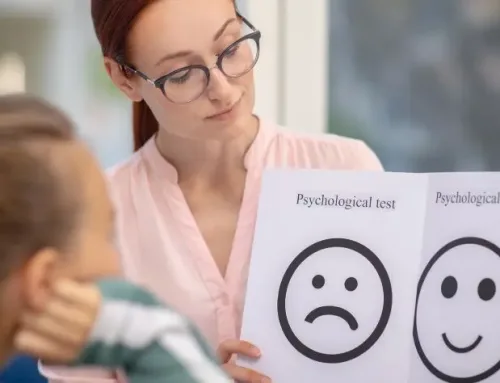Online Doctoral Counseling Programs: Accelerated Hybrid PsyD with Licensure

Online doctoral programs in counseling are drawing more interest than ever, especially among licensed professionals who seek to expand their scope, deepen their clinical expertise, or step into leadership roles. However, PsyD programs that are completely online generally do not meet licensure, clinical training standards, nor accreditation standards. Therefore, hybrid models are filling a void, offering more flexible options. These formats blend online coursework with in-person, interactive classes to deliver both academic depth and hands-on experience.
For counselors, psychotherapists, and other mental health professionals ready to level up, hybrid PsyD programs offer a practical path forward. They are structured to support working adults who want to stay grounded in their careers while moving toward advanced credentials.
Online PsyD or EdD? Clarifying Your Doctoral Counseling Options
If you’re searching for online doctoral programs in counseling, it’s important to understand how the structure, degree type, and professional outcomes vary across programs. ManyPsyD, PhD, or EdD degrees that prepare students for advanced clinical or academic roles follow a hybrid format. This typically means weekly online coursework paired with scheduled in-person residencies or intensives for interactive learning, skill-building, clinical training, or community practice.
When it comes to doctoral-level counseling degrees, there are three main options:
- PsyD in Counseling Psychology – Practice-based doctorate emphasizing clinical application and client-facing work; often preparing for licensure in clinical psychology.
- PhD in Counseling Psychology – Research-intensive degree focused on academic and scholarly careers.
- EdD in Counselor Education – Leadership and teaching-focused degree often pursued by educators or licensed counselors aiming for academic roles.
Not every doctoral program in counseling is designed for those seeking a licensure as clinical psychologists. Some focus on administrative leadership, program development, or counselor education. If licensure is part of your goal, it’s worthwhile to verify that the program includes internship requirements that are aligned with supervision standards in the states one wants to practice.
What Is an Accelerated Hybrid PsyD?
An accelerated hybrid PsyD program is designed to accommodate professionals who want to earn their degree efficiently while maintaining employment and fulfilling other obligations. These programs efficiently blend the convenience of online coursework with the value of in-person learning and clinical engagement. “Accelerated” refers to the shortened time frame of three to four years in which a doctorate can be completed compared to traditional programs that often take five or more years.
“Hybrid” means the format combines online and face-to-face learning. Students typically complete their core coursework online—either asynchronously (on their own schedule) or synchronously (live, in real time video conferencing)—and attend on-campus intensives several times per year. These in-person sessions are dedicated to student-instructor interaction and student to student collaboration.
This model is ideal for:
- Working professionals who want to advance without leaving their professional positions
- Clinicians and therapists looking to expand their clinical expertise and credentials
- Students needing geographic or scheduling flexibility
An accelerated hybrid PsyD offers a structure that keeps momentum steady by balancing academic rigor with practical flexibility. It’s built for those who want to progress quickly while still meeting the high standards of doctoral education and clinical training.
The SCUHS PsyD: Accelerated, Hybrid, and Practice-Focused
At Southern California University of Health Sciences (SCUHS), our Doctor of Psychology (PsyD) exemplifies what a modern, accelerated hybrid doctorate should be. Designed for working professionals, our 3.3-year program combines flexible online coursework with intensive, in-person classes. Students learn from a diverse faculty who share their expertise in varied psychodynamic approaches to understanding and treatment under the academic leadership of the program director, Dr. Jens Schmidt.
The curriculum integrates advanced theory with hands-on clinical application, emphasizing depth psychology, trauma-informed care, reflective practice, and real-world application for diverse populations. Each element of the program is structured to fit the demands of professional life, without compromising quality or clinical integrity.
If you have the ambition to grow as a clinician, to serve your clients with an indepth understanding of psychodynamics, and want to move confidently toward your doctorate, join a virtual information session or email us at admissions@scuhs.edu to get started.
How to Know If You’re a Good Fit for a PsyD
Doctoral programs in psychology and counseling—especially those built on a hybrid model—are designed with the adult learner in mind. They support professionals who are already grounded in clinical work but aspire to a career in leadership, specialization, or psychologist licensure. These programs generally expect applicants to bring both academic training and practical experience to the table.
The ideal candidate often includes:
- Master-level clinicians (LPC, LMFT, MSW, etc.)
- Professionals seeking licensure in clinical psychology
- Individuals pursuing advanced roles as supervisors, educators, and leaders in institutions and communities
This path offers depth, challenge, and clinical sophistication and adequate challenge for those who already have a solid foundation in the helping professions.
These programs may not be the right fit for:
- Students new to the field without any clinical background
- Those seeking education in psychology without the intent to work clinically
- Anyone expecting a fully online doctoral program with no in-person requirements
Take the time to reflect on your goals, current qualifications, and how much flexibility and structure would work best for you. Hybrid and accelerated PsyD paths can offer remarkable growth, but only when aligned with the right professional experience and intention.
Comparing Programs: What to Look for in an Online PsyD with Licensure
If you are aiming to become a licensed clinical psychologist in California, choosing the right PsyD with licensure alignment takes more than a quick scan of tuition costs or program length. You are well advised to evaluate how each program supports your clinical, academic, and professional goals, starting with whether the program will make you licensure eligible in your state.
A few key things to look for:
- Institutional accreditation: Regional accreditation is a must. In California, doctoral programs must be regionally accredited to meet the standards of the Board of Psychology to qualify for licensure as a clinical psychologist.
- Licensure alignment: Make sure your curriculum includes coursework and training that satisfies California’s specific Board of Psychology requirements.
- Online vs in-person structure: Hybrid formats are common. Review how many in-person intensives are required each year and whether they fit your schedule.
- Curriculum coverage: Look for a balanced curriculum that includes psychological theory, clinical assessment and psychodiagnostics, ethics, and multicultural competence..
- Clinical hours: Licensure requires significant supervised experience. Review how the program supports practicum and internship planning.
- Faculty expertise: Instructors, especially in PsyD programs, should have scholarly and educational experience, while being licensed practitioners and availability to support doctoral students.
- Pacing and flexibility: Some programs are full-time, others part-time or accelerated. Choose a program that aligns with your personal and professional goals and life.
The right program positions you for long-term career success, be it licensure, a thriving practice, professional leadership, or an agent of change for individuals, groups and communities. Be thorough in your comparison. Your choice sets the foundation for your entire future in the field.
Advance Your Clinical Career with the SCUHS PsyD
For many clinicians, the desire to grow never ends. At SCUHS, we designed a doctoral program to accompany and support these professionals who view themselves as lifelong learners on their journey.
Our Doctor of Psychology (PsyD) in Psychodynamic Psychology is advanced, applied, and deeply relevant for professionals who already bring their experience in the mental health field to the table. Whether you are a licensed counselor, psychotherapist, or social worker—or a professional from a related behavioral health field—this PsyD is designed to promote your expertise while respecting the commitments you already have.
Our PsyD program offers a clear, structured, and efficient pathway for professionals who are driven by a desire to further their clinical practice and to make a more lasting impact in the populations they serve by offering the depth of psychodynamic understanding and technique whether it is in psychodynamic treatment, education, or leadership.
- Designed for those who already hold a master’s degree in psychology, counseling, social work, or a related field.
- 3.3-year accelerated hybrid format combining online learning with immersive in-person teaching and instruction for applied learning and faculty student engagement.
- No mandatory practicum, internship or university-arranged clinical placements, as students apply their advanced learning directly within their current professional settings.
- Emphasis on psychodynamic psychology, offering rare specialization in understanding psychological development from infancy through childhood, adolescence, and adulthood from a psychodynamic vantage point while recognizing the specific age-related therapeutic demands and learning about age specific therapeutic techniques.
- Integrative health foundation, reinforcing the connection between emotional, physical, and relational well-being—an approach deeply aligned with SCUHS’s institutional philosophy and commitment to whole health and integrative medicine.
- Guided by Dr. Jens Schmidt, Program Director and seasoned psychodynamic practitioner and educator, who led the design of a unique program that bridges classical and contemporary psychodynamic theory and treatment approaches with neuroscientific knowledge, trauma-informed care, and multicultural considerations.
- Financial aid and scholarships available to support access and affordability for qualified applicants.
This combination of depth, flexibility, and rigor makes SCUHS a standout choice for professionals ready to elevate their career in meaningful ways.
Who Thrives in the SCUHS PsyD
Our program is ideal for professionals who:
- Have a foundation in mental health care related work and want to advance their clinical scope.
- Seek to expand their understanding of self and others through psychodynamic theory and offer more in-depth care to children, adolescents, adults, their families and their communities
- Value integrative, whole-person approaches to care that integrate psychodynamic modalities informed by neuroscience and trauma-informed perspectives
- Aspire to leadership roles in clinical practice, education, organisations, and administrations.
If you are ready to pursue advanced psychodynamic training in a program that respects your experience and ambitions to grow, our hybrid PsyD could be the next step you’ve been looking for.
Take the Next Step in Your Clinical Journey
Many working professionals look for a doctoral path that aligns with their clinical experience, personal growth, and long-term career goals. A flexible, practice-based PsyD offers a way to deepen your skill set while staying active in the work that matters most to you. The SCUHS program was built to support that balance—with hybrid coursework, hands-on in-person faculty-student interactions and learning, and a curriculum rooted in psychodynamic insight.
If you are ready to take the next step, we are here to accompany you on this exciting and enriching journey. Join a virtual information session or email us at admissions@scuhs.edu.
FAQs
Can I become a licensed psychologist through an online PsyD program?
Most states, including California, require a doctoral degree with specific coursework and a substantial amount of clinical hours and professional supervision that align with Board of Psychology guidelines to sit for licensure. Online PsyD programs that meet these requirements (often through a hybrid model with in-person components) may qualify. However, you should always verify the program’s licensure compatibility with your state board before enrolling.
Are hybrid PsyD programs considered as rigorous as traditional ones?
Absolutely. A well-designed hybrid PsyD program blends online coursework with structured in-person learning and clinical application. Many are created specifically for working professionals who can enter the program with a strong clinical foundation. You are still expected to meet doctoral-level standards in theory, practice, and critical thinking, just with more flexibility.
How long does it take to complete a hybrid PsyD program?
Most hybrid PsyD programs are designed to be completed between 4 to 6 years. There are some accelerated options available to students who hold a master’s degree in psychology or a related field and have substantial clinical experience.
Do PsyD programs require a dissertation?
Some PsyD programs require a traditional doctoral dissertation while other practice-focused PsyD programs have moved to alternatives such as a doctoral project or capstone projects, clinical portfolios, or applied theory integration papers. These alternatives allow students to demonstrate clinical mastery without having to conduct time-consuming and original research studies.
Does the SCUHS PsyD program help with licensure in California?
Our program is designed for advanced clinical professionals—many of whom are already licensed in the mental health field or working in settings that do not require a license in clinical psychology. For this reason, SCU does not require practicums or internships, nor does SCU arrange for clinical placement or supervision services. However, SCU’s PsyD is eligible for licensure in the state of California. For those who decide to pursue licensure in clinical psychology, SCU will seek to assist and support them in their endeavor and career building. However, to learn and to fulfill all licensure requirements rests with each individual applicant for licensure..
Related Posts




